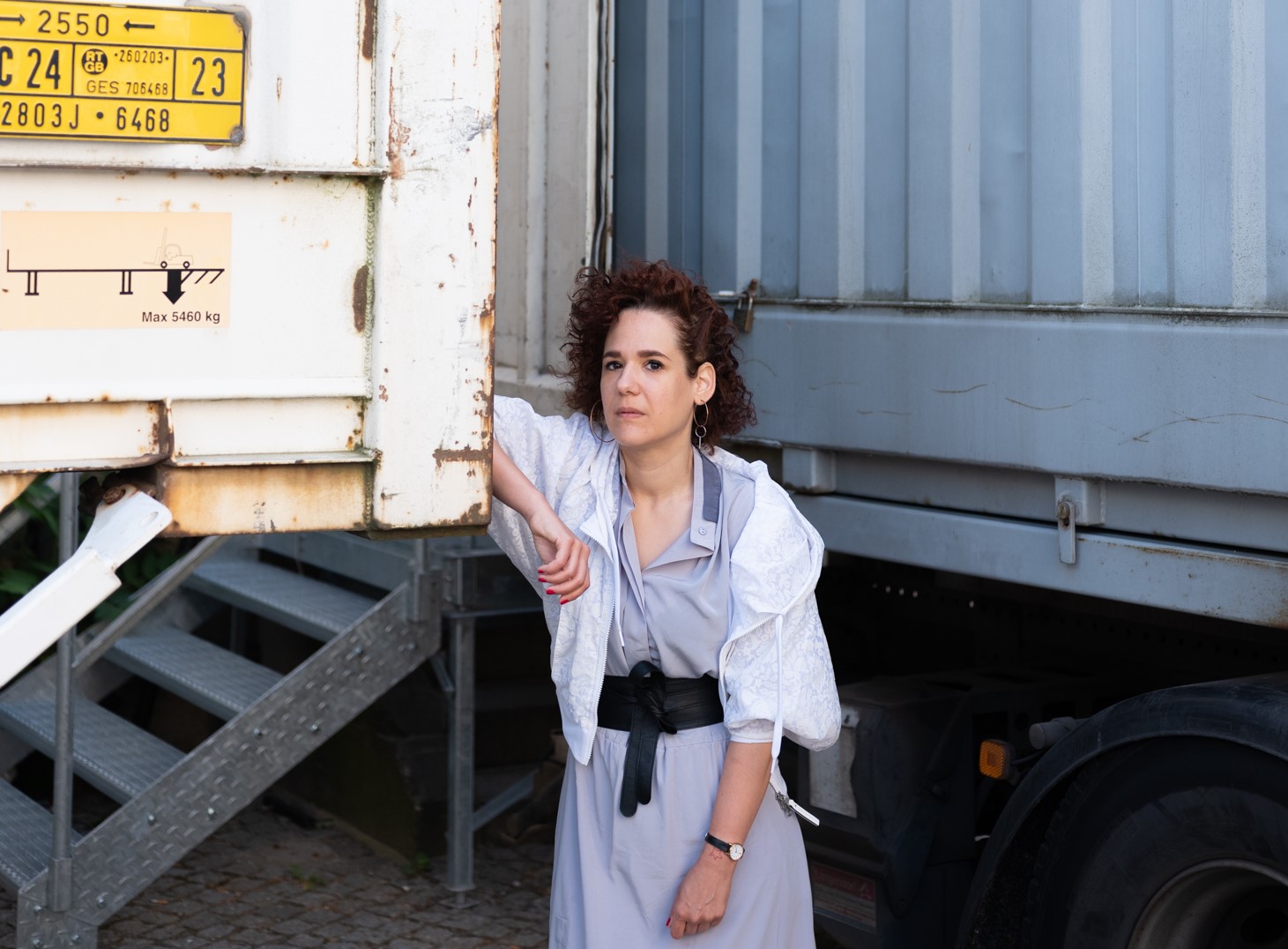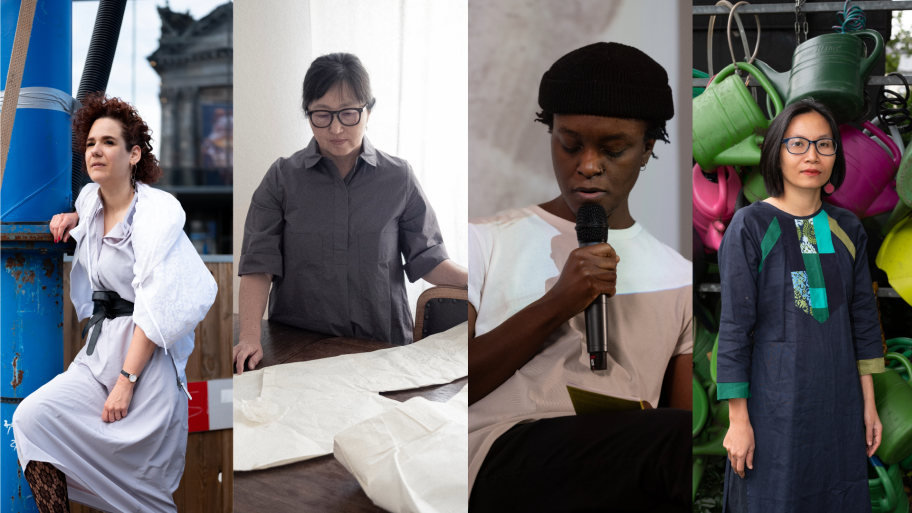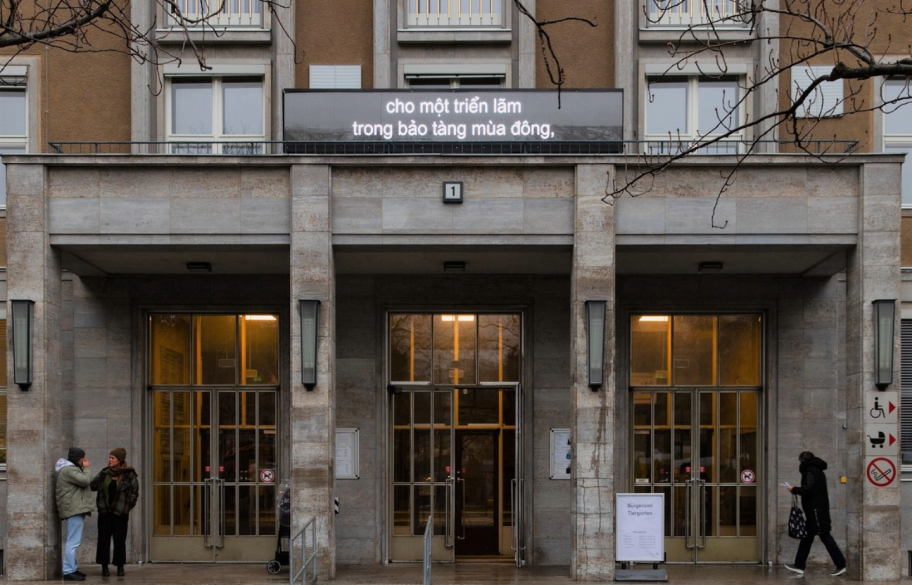Hungary, Literature, 2023
Kinga
Tóth

Kinga Tóth opts for steadfast indecisiveness and bears the consequences in writing, sound, and body: multilingualism, polyphony, the abrupt alternating between spheres, genres, and artistic as well as political identities are the artistic means that imbue Tóth’s texts, performances, and thus herself as a person with a singular aura. The linguist, visual & sound poet, illustrator, and cultural manager writes in German, Hungarian, and English. She presents her texts in installations and performances worldwide, regardless of linguistic and cultural barriers. Not to mention the precarity of her work as the founder of an organization for women’s equal rights and representation in the Hungarian literary scene.
To do justice to the demands of her art, it is useful to think of her works as entities in pursuit of their own objectives that form at the same time a meta-corpus that retroactively represents them and is represented by them. Tóth’s poems, the worlds of sound in which they are situated, and herself as the person closest to them, form a relationship to the world. Their existence thus poses the fundamental question of the possibility and impossibility of artistic work under tenuous political circumstances.
Where this question resounds most clearly, these entities develop an uncanny power, a protective shield against the grievances they decry. Kinga Tóth as a person who represents her works, and her works that represent her, share the noble task of turning into relief supplies for those in need. Instead of providing comfort, they call for action. Instead of demanding attention, they give energy.
These works subvert with the utmost elegance the conventional dictum that form and context should be distinct. The sound is aware of the message it conveys. The message is aware of its bearer and the bearer is very well acquainted with the context. Only in this way do text, sound, and body become an organic whole. Only with the help of the persistent, ruthless process of reflection that Kinga Tóth undertakes, including the synchronizing of the person with her work, does the distance necessary for conscious art production arise and—accordingly—the necessary closeness to lend moments of surprise, transcendence, and clarity to this conscious act of creation. Tóth’s art thus reveals itself as highly topical, incisive, and political. She is not satisfied with transgressing boundaries. A glimpse behind the scenes and an appraisal and representation of the unknown is the very least that these works are capable of achieving.
Text: Yevgeniy Breyger
Translation: Jacqueline Todd





